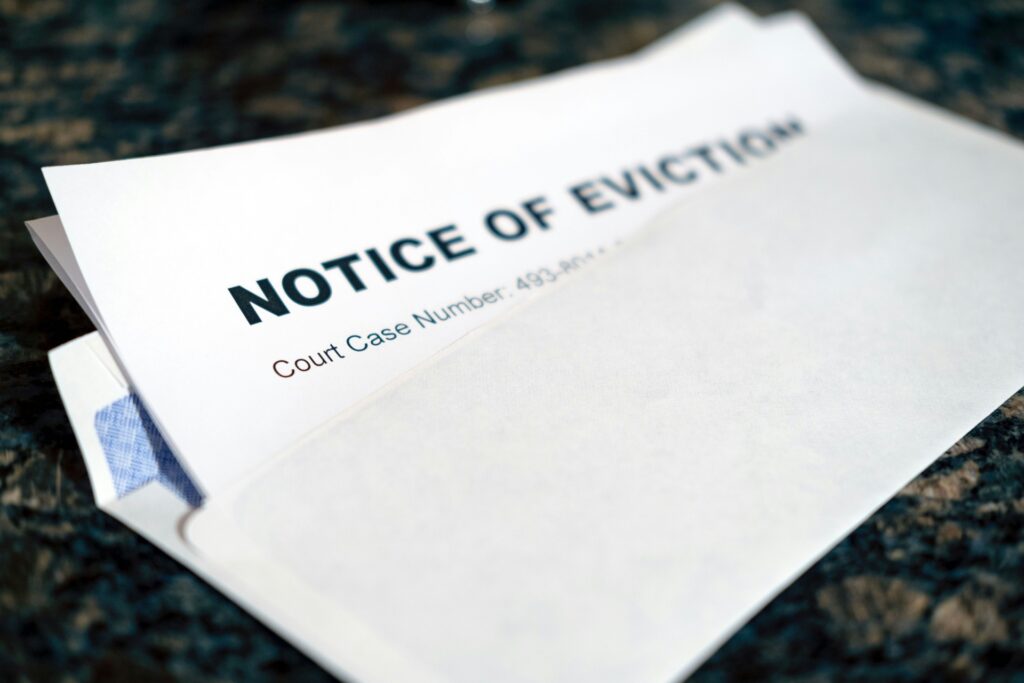
We are reader-supported. When you buy through links on our site, we may earn an affiliate commission.
A title insurance premium is one of the closing costs associated with homebuying. Reducing these expenses is an effective way to afford such a big-ticket purchase, begging the question — is title insurance a waste of money?
What Is Title Insurance?
Before discussing the benefits of title insurance, let’s talk about what it is. You get this policy near the end of the homebuying process. If you get title insurance, you protect yourself from someone else claiming they have ownership of your property.
Someone claiming ownership of your property means the title may be clouded. Clouds on title give rise to legal battles and title insurance claims.
Types of Title Insurance
Title insurance protects against losses should a claimant appear and take legal action after the home purchase closes. Coverage varies from policy to policy, but title insurers generally pay for court costs and attorney fees.

Title insurance policies apply to single parties only, meaning they apply to the owner or the lender. Owner’s title insurance safeguards your interests, whereas lender’s title insurance — also known as loan policy — protects your creditor from financial losses.
Should You Get Title Insurance?
Consider getting title insurance to protect yourself from lengthy property ownership issues. These cases could end up in court and take months and years to settle.
You could fork over tens of thousands of dollars in legal fees and headaches. Some of the issues homeowners find themselves in may include:
- Unknown liens: One of the most common issues for new homeowners is liens on the property they’re unaware of. They could come from different sources, even if it’s the previous homeowner’s fault. They may have failed to pay the local tax authority or a contractor. These instances lead to someone else claiming ownership of your property.
- Unknown easements: Easements allow a person to legally use someone else’s property. A utility company may use an easement to go into your backyard to work on power lines without your permission. Title insurance will protect you from easement disputes.
- Fraudulent claims: You could run into an issue where a spouse, child or someone else claims ownership of your home, but they don’t have a realistic claim. Or, they could be someone you know pretending to be your spouse or heir to try and sneak away ownership of the property. Title insurance protects against these scams.
Is Title Insurance a Waste of Money?
In most cases, title insurance isn’t a waste of money. It can save you money and relieve stress in the long run.
However, cost is an undeniable drawback of title insurance. Spending a considerable sum on an event that may never happen is a gamble.

Shop around and seek ways to save as much money as possible without compromising on protection by considering these factors:
Price
The title insurance premium typically represents a percentage of the property’s value. The property’s location dictates the computation. States regulate title insurance rates, so insurers generally can’t raise prices as they wish.
However, you may snag a discount in some states when buying owner’s and lender’s policies from the same title insurer.
Coverage
The type of title insurance you get differs with every company. You may get some coverage to protect against the issues mentioned above, but a lack of coverage could put you in a bind.
Comprehensive coverage can be pricy but also worth it if you have disputes. This policy typically protects against a wide range of potential issues — including undisclosed liens, easements and fraudulent claims. While it may cost more, the added protection is worth the investment.
Necessity
Many states, like Texas, don’t mandate title insurance. It’s only a requirement when taking out a home loan because your mortgage lender won’t release the funds without concrete assurance that the title is clear before closing.
If you own a property free and clear but are uninsured, you don’t have to buy an owner’s title insurance policy. Your risk appetite determines whether it’s worth the expense.
The less you know about your property’s history of ownership, the more likely you are to encounter claimants out of the blue in the future.
Ownership claims can become a battle of attrition — the party with fewer resources will likely lose. Can you defend your interests in the house long enough to resolve such claims?
Forgoing title insurance protection is a roll of the dice to save money in the present and risk paying a large sum in the future.
Risk is constant whether or not you buy a policy. It’s just a matter of deciding which risk is more palatable to you.
How Title Insurance Fits Into Buying a Home
Title insurance plays a vital role in buying a home, making the process smoother and safer:
- Before you buy: When purchasing a home, title insurance companies investigate the property’s history to uncover potential issues like unpaid home improvement bills or legal problems. This step will help you avoid hidden issues that might cause you trouble later on.
- Closing time: When you’re ready to seal the deal, title insurance ensures everything’s in order, preventing any last-minute surprises that could delay or jeopardize the purchase.
- After you own the home: Even after you move in, title insurance protects you. If someone claims ownership of your property or there’s a hidden problem with the title, it keeps you safe.
- Peace of mind: Above all, it’s your peace of mind. Knowing you’ll likely avoid potential future ownership issues is a massive relief in a stressful process.
Title Insurance Benefits for Buyers vs. Sellers
Title insurance benefits the homebuyer by enabling mortgages and protecting against future financial losses associated with previously unknown title defects. This product also benefits the seller by shedding light on the property’s ownership history to inspire confidence in interested parties and demonstrate transparency.
In some locations, it’s customary for the seller to pay for the owner’s title insurance policy.
Title Insurance Alternatives
Alternatives to title insurance exist to reduce closing costs during home buying and reduce barriers to home ownership.
If you take out a conventional loan, you negotiate to submit an attorney opinion letter (AOL) instead of purchasing a title insurance policy. Fannie Mae and Freddie Mac have authorized lenders to accept AOLs for specific transactions under certain conditions, reducing the closing costs for a borrower by three figures.
AOLs used to be the standard before title insurance went mainstream. Like appraisals, these written documents result from an expert’s research. An attorney personally reviews the subject property’s ownership history based on available information to paint a picture of its chain of title.
The problem with AOLs is that they can only illuminate matters found during a title search. By definition, these documents exclude hidden title defects. After all, attorneys need evidence to form an opinion.
The title insurance waiver is another alternative to the loan policy requirement. Then-President Joe Biden launched this pilot program to allow lenders to lower housing costs for consumers on some refinances.
The American Land Title Association (ALTA) these waivers offer a false sense of security. The association believes that painting the title insurance premium and other closing costs as burdens to homebuyers creates an illusion of savings but exposes stakeholders — including borrowers — to greater financial risk.

The availability of title insurance alternatives benefits borrowers seeking options to reduce closing costs. However, there’s no denying that AOLs and title insurance waivers can’t protect the insured from financial losses when an unknown title defect surfaces.
Only time will tell if President Donald Trump reverses the previous administration’s title insurance waiver initiative. Although two federal agencies regulate Fannie Mae and Freddie Mac, influencing the decision of each corporation’s board of directors is less straightforward.
Frequently Asked Questions
Here are the answers to the other pressing questions about title insurance in real estate.
What Does Title Insurance Cover?
Title insurance covers financial losses the policyholder may pay to cure the title.
Coverage is usually equal to the property’s selling price. Depending on the policy, title insurance coverage may or may not change as the underlying house appreciates or depreciates over time.
When Is Title Insurance Not Necessary?
Title insurance is generally necessary when taking out a mortgage.
Buying a lender’s title insurance policy may be one of the requirements you must satisfy to get your home loan application approved. Under certain circumstances, your lender may accept an attorney opinion letter or waive it altogether.
On the other hand, an owner’s title insurance policy is optional. This product is unnecessary but valuable when buying a house with cash.
Without it, you have no choice but to pay 100% of the cost to cure your property’s title when somebody files a legal claim to it in court out of pocket. Some title defects are more challenging and expensive to resolve than others, so there’s no telling how big or small your loss may be.
Title Insurance vs. Escrow — What’s the Difference?
Title insurance protects the policyholder — the owner or the lender — from financial losses when a title defect emerges after the property changes hands. Escrow, conversely, is a process safeguarding the interests of the homebuyer and the mortgage lender throughout the real estate transaction.
Title companies perform title searches and property surveys, issue insurance policies, hold the earnest deposit in escrow and apply it to the down payment, and offer closing services.
Escrow companies guarantee all parties involved in the homebuying process that the funds are available and sufficient. These neutral third parties release the money to relevant parties only when said parties perform their duties accordingly. Escrow companies also assure the buyer their money is safe until the seller hands you the keys.
Title and escrow companies are different entities. However, many title companies also offer escrow services.
Is Title Insurance a Waste of Money? Survey Says No
Title insurance is rarely a waste of money. Not buying it is a waste of opportunity to insure yourself from potentially costly unforeseen title defects down the road. Although alternatives exist to reduce your overall costs by three digits, your initial savings won’t compare to the value title insurance protection provides in the long term.
Original Publish Date 12/09/2022 — Updated 02/10/2025







